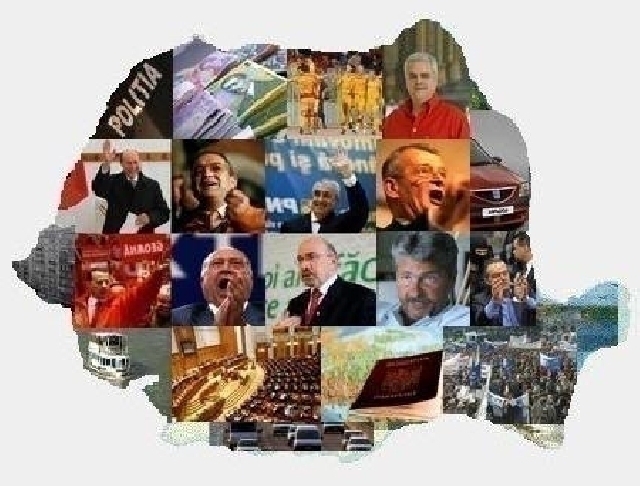The Week in Review 27 April – May 3
A roundup of the week's main stories

Mihai Pelin, 02.05.2015, 20:26
President Klaus Iohannis pays a visit to Italy
Romania’s president Klaus Iohannis paid an official visit to Italy, the country home to the largest Romanian community in the Diaspora. The president met with Prime Minister Matteo Renzi, who said that the members of the Romanian community in the Peninsula are well integrated, contribute to Italy’s economic growth and represent a bridge between the two countries. President Iohannis and Prime Minister Renzi also reviewed economic and cultural bilateral relations, as well as Moldova’s bid to join the European Union. In Rome, Klaus Iohannis met with his counterpart Sergio Mattarella and with Romanian students and scholarship beneficiaries with the Accademia di Romania, whom he congratulated for their excellent results. Klaus Iohannis said he would pay another visit to Rome on May 15, during his visit to the Vatican.
The Romanian Senate endorses the Fiscal and Fiscal Procedure Codes
The Romanian Senate has endorsed the Fiscal Code and Fiscal Procedure Code bills. The new codes are aimed at reducing taxation by eliminating certain taxes and duties, curbing tax evasion, boosting consumption and stimulating economic growth. Among the provisions in the code are the VAT reduction to 9% for foodstuffs starting June 1, and from 24 to 20%, as of January 1, 2016, for all goods and services. The new codes also provide for the scrapping of the special building tax and the 16% tax on dividends, and for reducing the flat tax rate from 16 to 14% starting January 2019. The opposition has criticized the Government’s measures, labeling them unrealistic. The new Fiscal Code is to be tabled to the Chamber of Deputies for debate, which holds the decision-making power in this case.
Prime Minister Victor Ponta visits Strasbourg and begins tour of Gulf states
Prime Minister Victor Ponta paid an official visit to Strasbourg, where he met with high-ranking EU officials. Talks focused, among others, on the economic context in Romania, in relation to European Commission president Jean-Claude Juncker’s investment plan. Victor Ponta assured Romania’s partners in the EU that Romania is a prime competitor in the region, after four years of economic growth. Also this week the Prime Minister began his tour of the Gulf area, with his first stop being Saudi Arabia. It was actually the first visit of a Romanian Prime Minister since diplomatic relations were set up with this country, 20 years ago. The tour’s main objective is to revitalize political and diplomatic relations and consolidate economic and trade relations. The Prime Minister will showcase business and investment opportunities in Romania, in such fields as constructions, infrastructure, agriculture, industry, energy, IT and healthcare.
The Senate rejected the so-called “Big Brother” draft law
The Senate in Bucharest rejected upon re-examination the draft law on cyber security, the so-called “Big Brother” law. It had been previously rejected by the lower chamber. The National Liberal Party, in the opposition, argued against this law in Constitutional Court in January. The court ruled that this bill was unconstitutional overall, lacking coherence, clarity, predictability, as well as having procedural gaps, since it lacked endorsement from the Higher Defense Council. The bill addresses, among other things, the retention of data generated by providers of public electronic communication networks, as well as by the providers of electronic communication services for the public.
The Romanian economy should be prepared to join the Eurozone, according to National Bank governor, Mugur Isarescu
Romania should prepare carefully to join the Eurozone, especially by eliminating sources that put great pressure on the economy, said National Bank Governor, Mugur Isarescu. According to him, before adopting the Euro in 2019, the Romanian economy should be prepared, because the standing exchange rate regime entails some risks. Thus, there is need for restructuring state companies and the energy market, as well as clarifications regarding co-financing from the state budget and developing road infrastructure. According to a recent study, the number of insolvencies has dropped in Romania in the first quarter of this year to less than half compared to the same period in 2014, even though the social and financial impact upon the economy was greater, considering that layoffs went up 24%.
The 2015 car-scrapping scheme was officially launched
Romania has kicked off the car-scrapping scheme for 2015. In exchange for scrapping a car older than eight years, owners get a voucher worth 6,500 lei, about 1470 Euro, which they can spend on purchasing a new car or transfer to another natural person. The amount allocated this year for the program is 200 million lei (about 45 million Euro), 33% more than last year, and the authorities expect 20,000 drivers to get new cars. In the ten years the program has been running, about half a million old cars got scrapped. In addition, the Ministry of Finance plans to change by June the emissions sticker for cars, in order to encourage the purchase of less polluting cars.



























